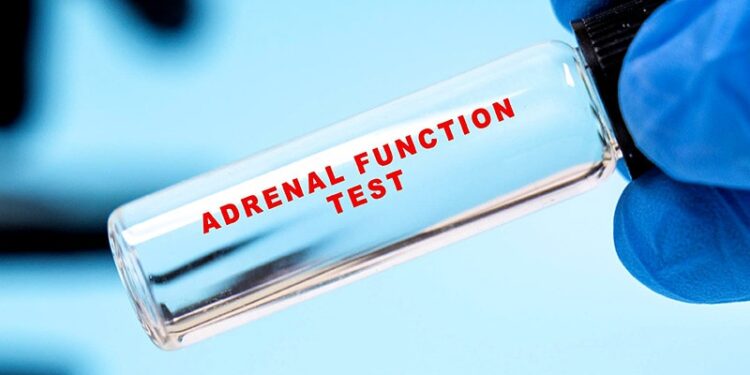TOPLINE:
A study involving patients with polymyalgia rheumatica or giant cell arteritis found a 1.9% prevalence of glucocorticoid therapy–induced adrenal insufficiency following the discontinuation of prednisolone, suggesting that routine screening should be reserved for those exhibiting clear symptoms.
METHODOLOGY:
- Tapering or stopping glucocorticoid therapy can cause a withdrawal syndrome resembling adrenal insufficiency; however, the prevalence and clinical implications of glucocorticoid therapy–induced adrenal insufficiency remain unclear.
- Researchers conducted a cross-sectional multicentre study at three Danish hospitals, including 267 patients (55% women; median age, 73 years) with polymyalgia rheumatica and/or giant cell arteritis who were investigated after planned prednisolone cessation.
- Participants were evaluated a median of 39 days after stopping prednisolone treatment, which had lasted a median of 13 months, with starting doses of 40-60 mg for giant cell arteritis and 12.5-25 mg for polymyalgia rheumatica.
- The primary outcome was glucocorticoid-induced adrenal insufficiency, defined as a stimulated plasma cortisol level of < 420 nmol/L in response to a short 250 μg corticotropin test.
- Secondary outcomes included adrenal insufficiency symptoms assessed using the Addison disease–specific quality-of-life (AddiQoL-30) questionnaire, which was completed by 219 participants.
TAKEAWAY:
- Among 267 participants, only five (1.9%; 95% CI, 0.8-4.3%) had glucocorticoid therapy–induced adrenal insufficiency, with four of them having an AddiQoL-30 score ≤ 85.
- A total of 75 patients (34%; 95% CI, 28-41%) had an AddiQoL-30 score ≤ 85 despite a normal response to the short corticotropin test; these symptomatic patients had significantly lower basal cortisol levels than asymptomatic patients (263 nmol/L vs 309 nmol/L; P < .001).
- Female sex (prevalence ratio [PR], 1.68; 95% CI, 1.13-2.51), short duration of prednisolone cessation (PR, 2.05; 95% CI, 1.01-4.15), high body fat percentage (PR, 2.33; 95% CI, 1.21-4.50), reduced handgrip strength (PR, 2.71; 95% CI, 1.44-5.10), and reduced physical performance (PR, 2.78; 95% CI, 1.42-5.42) were associated with lower AddiQoL-30 scores.
IN PRACTICE:
“Our findings suggest that a 250 µg SST [short corticotropin test] after planned cessation of prednisolone treatment is not cost effective as a routine follow-up and could be restricted to patients with severe symptoms, which supports and strengthens the recommendations from a recently published guideline,” the authors wrote.
SOURCE:
The study was led by Simon Bøggild Hansen, MD, Aarhus University Hospital, Aarhus, Denmark. It was published online on March 18, 2025, in JAMA Network Open.
LIMITATIONS:
The study did not capture patients unable to sustain prednisolone cessation for at least 2 weeks, which could have affected the prevalence of adrenal insufficiency. Additionally, nearly one third of invited patients declined participation, possibly introducing selection bias. Symptomatic adrenal insufficiency was defined according to a questionnaire developed for primary adrenal insufficiency, which may not have been fully applicable to this population.
DISCLOSURES:
This study was supported by the Novo Nordisk Foundation as part of a collaborative grant, DOUBLE EDGE—Characterization and mitigation of adverse effects of glucocorticoid treatment. Some authors declared receiving grants, personal fees, or non-financial support or having other ties with certain organisations and pharmaceutical companies.
This article was created using several editorial tools, including AI, as part of the process. Human editors reviewed this content before publication.
Source link : https://www.medscape.com/viewarticle/routine-adrenal-testing-post-prednisolone-may-not-be-needed-2025a10006r6?src=rss
Author :
Publish date : 2025-03-25 12:00:00
Copyright for syndicated content belongs to the linked Source.














